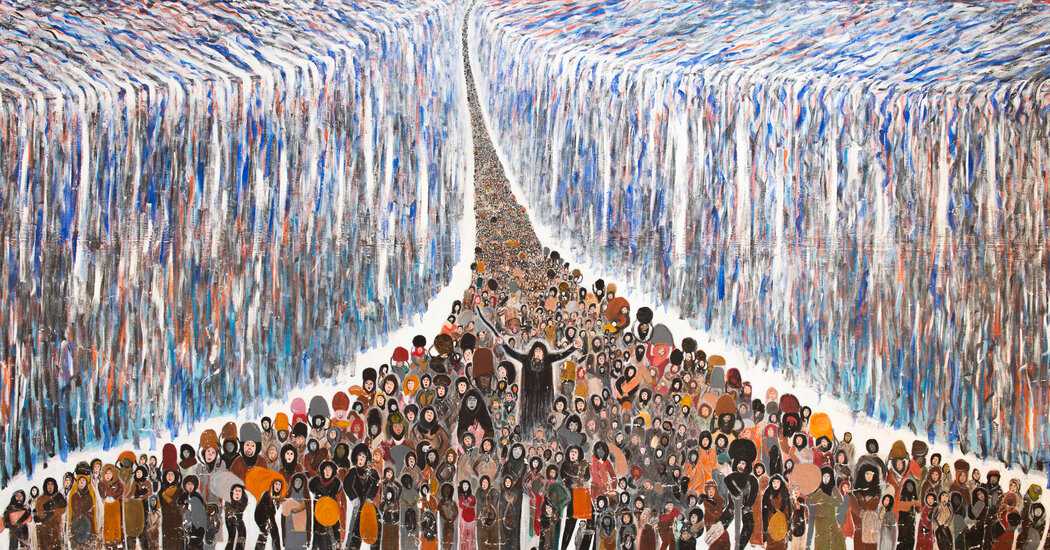Opinion | This Passover America Needs a Redemption Narrative
This is an archetypal redemption story, a reminder that as much as the world has changed since ancient times, oppression, degradation and exploitation remain part of the human condition. As long as there is power, there will be abuses of power. But the Exodus is also a reminder that any moment could be the inflection point between oppression and liberation. And so the telling and retelling of this story are the closest we, as a people, come to the generational transmission of hope, which can itself be seen as an act of spiritual resistance.
The Exodus narrative demands of us full partnership in the grueling, unending work of building a just society, one that stands as countertestimony to the brutality the Israelites experienced in Egypt. This is why the treatment of the ger, the stranger, the vulnerable one, becomes the central obsession of the five books of Moses. The many biblical commandments regarding treatment of the stranger are all rooted in the same principle: “Do not oppress the stranger, since you know the soul of a stranger, for you also were strangers in the land of Egypt” (Exodus 23:9). The message is clear: The work of leaving Egypt doesn’t end once the people cross the Red Sea, on the path to the Promised Land. As Emma Lazarus, the poet whose words grace the Statue of Liberty, wrote in 1883, “Until we are all free, we are none of us free.”
Freedom was hard won for the ancient Israelites, coming only after God unleashed 10 formidable plagues on Egypt. The plagues are commonly read as punishments levied against the Egyptian people for the terrible suffering they forced upon the Israelites, but there is another way to interpret God’s actions. One medieval rabbi, Sforno, argued that the plagues were actually brought to awaken the conscience of the oppressor, “to increase the chances that Pharaoh would finally see the light and become a genuine penitent.” In other words, what God desired was a true change of heart. God wanted Pharaoh and his people to take responsibility for the injustices they committed. Tell the truth. Make amends. Offer reparations. Chart a new course, together with the Israelites.
In this reading, the objective of the redemption story was the liberation of not only the Israelites but also the Egyptians. They needed to be liberated from the morally perverse mind-set that justified their cruelty in the first place. True redemption requires the transformation of the oppressed as well as the oppressors.
American Jews read this story year after year in a beautiful and broken country, one that strives toward its loftiest aspirations even as it balks at contending honestly with its own past transgressions. One that remains wedded to the same supremacist thinking that has fueled the most shameful chapters of our shared history.
Check out our Latest News and Follow us at Facebook
Original Source







